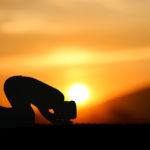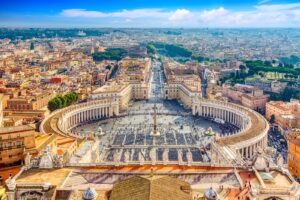President Obama’s recent speech in Jakarta was a reminder of a significant yet little noticed strategic shift in the course of U.S. counter-terrorism. Since 9/11 widespread use of the phrase “the Muslim world” has supported the Osama bin Laden narrative that we live in a world of “Muslims vs. non-Muslims.” In his June 2009 Cairo speech and again in his Jakarta speech this month, President Obama has spoken about “Muslim communities” and “Muslims around the world”—not “the Muslim world.” Yet media coverage of his Cairo speech and again his Jakarta speech was framed in terms of “the Muslim world.” The New York Times even went so far last week as to describe his Cairo and Jakarta speeches in terms of a false dichotomy, one never referenced in his speeches, of “the West,” on the one hand, and “the Islamic world,” on the other.
The phrase “the Muslim world” inaccurately implies that Muslims are in some separate location and that they are a monolith. Muslims, however, are not segregated in one part of the globe. Muslims live in many different communities, including right here in America. In America Muslims are part and parcel of my town, owners of businesses where I shop, colleagues at work, public servants in government, members of the military which protects us.
In the event one needed a reminder of how talk of “the Muslim world” is not only dangerous but also just simply ridiculous, consider Anwar al-Awlaki’s recent assertion that Americans are “the Devil” and “of the party of Satan,” and that therefore no fatwa is needed to target Americans for death. The fact of the matter is that al-Awlaki, while portraying himself as an uber-Muslim, is actually calling all of us Americans, non-Muslim and Muslim together, “the Devil,” and “of the party of Satan,” and al-Awlaki has opened hunting season in America for non-Muslims and Muslims alike.
Al-Qaeda leaders like al-Awlaki preach a hyper-simplified view of a black-and-white, us vs. them world. President Obama, meanwhile, has done well in making an effort not to encourage this with hyper-simplistic, factually inaccurate language such as “the Muslim world.”
Start your day with Public Discourse
Sign up and get our daily essays sent straight to your inbox.Muslim populations themselves contain complex diversity. Not only are there sects and sub-movements inside these sects of Islam, but also, and more significantly, Muslims have differing interpretations of their faith and robust internal engagement in questions of interpretation and meaning. The native languages of Muslims range from English to Bolaang Mongondow to Chinese and beyond. Muslims live in over sixty countries. In his Jakarta speech, President Obama was smart to sustain his use of phrases such as “Muslim communities” and “Muslims around the world.”
President Obama offered a strategic reframing, insisting that “those who want to build must not cede ground to terrorists who seek to destroy.” This is a war of builders vs. destroyers, not a war of non-Muslims vs. Muslims. Countering Islamist violent extremists is a task for Muslims and non-Muslims. Those who are truly “other” are the violent Islamist extremists. But there is work to be done, and responsibility for it lies with all “who want to build.”
And yet, a counter-current in President Obama’s Jakarta speech risks undermining this. I can understand President Obama reiterating the clarification President Bush made again and again, namely that America’s post-9/11 defenses are not at war against Islam. Confusion about this abounds in some corners of the world, so reiteration is in order. However what I find baffling and, frankly, dangerous, is the president’s claim that, “al-Qaeda and its affiliates…have no claim to be leaders of any religion—certainly not a great world religion like Islam.” This strange phrase sidesteps the fact that these terrorists self-identify as Muslims. They are not generic terrorists (as if there were such a thing).
Muslims in many communities around the globe reject al-Qaeda-esque interpretations of Islam, and Muslims number among those risking their lives to counter Islamist violent extremism. And yet the fact remains that bin Laden and his cohorts self-identify as Muslims and cite their interpretation of Islam as a core component of their motivation.
Al-Qaeda claims to speak and act in the name of Islam. We must remember that recognizing that al-Qaeda supporters claim to act in the name of Islam is not the same as recognizing them as Islam. This is a vitally important distinction.
If the U.S. starting point in trying to counter al-Qaeda is based on obfuscation or even denial about who these violent extremists understand themselves to be, then we will launch our efforts on the wrong trajectory. With such an approach, efforts to counter al-Qaeda’s bloody terrorism can amount to little more than stabbing blindly at imaginary windmills.
Al-Qaeda members are shouting loudly and clearly about who they understand themselves to be; we ignore them at our own peril. Let’s face it: if religion is part of the problem, then it has to be part of the solution. As Chris Seiple, the President of the Institute for Global Engagement is fond of saying, “only good theology beats bad theology.”
Intra-Muslim struggles underway today are at the heart of efforts to counter al-Qaeda’s influence. In addition to (and at times as part of) the military efforts of the U.S. and NATO allies in places like Afghanistan, Muslims themselves number among those who are at the front lines fighting against Islamist extremists. Examples of the latter are in historian James Le Sueur’s forthcoming documentary film on writers and creative intellectuals, including many Muslims, exiled from Muslim-majority communities and living with threats from Islamist-extremists of violence and even death.
Those of us who oppose Taliban-esque societal takeovers and terror need to find ways to understand anti-terrorist Muslims and remove the barriers, like widespread censorship, that limit their efforts. Denying, however, that Islam has anything whatsoever to do with this is a recipe for the U.S. government to waste taxpayer money and precious time and miss opportunities to support Muslims who can engage religiously in a way those of us who are not Muslim cannot.
When it came to the topic of religious freedom, President Obama in his Jakarta speech continued a trend in his presidency to speak only of one aspect of religious freedom, namely freedom to worship, as if this in and of itself were religious freedom. It is not. He spoke in Jakarta only of, “the freedom to practice your faith without fear or restriction,” and that “people choose to worship God as they please.”
This is an impoverished concept of religious freedom which does not reflect the Congressional mandate in the 1998 International Religious Freedom Act, nor Article 18 of the Universal Declaration of Human Rights, namely “Everyone has the right to freedom of thought, conscience and religion; this right includes freedom to change his religion or belief, and freedom, either alone or in community with others and in public or private, to manifest his religion or belief in teaching, practice, worship and observance.”
Curiously, President Obama followed his eviscerated references to religious freedom in Jakarta by advocating Americans and Indonesians treat what some might consider political programs—about progress, unity, and peaceful coexistence—as “truths” that we should share “with faith and determination…with all mankind.”
Reducing discussions of truth to the endorsement of a political program while treating religion as a quaint set of cultural traditions or denying the relevance of religion outright will not empower populations to tackle the ideology of al Qaeda and related Islamist movements, nor will this foster authentic religious freedom.
If we Americans, non-Muslim and Muslim alike, want to seek meaningful partnerships with Muslims in other populations of the world for countering terrorism and fostering human welfare, we need to stop hiding behind verbal gymnastics to avoid facing the reality of the vital role faith plays in the lives of many populations in the world today. This includes those who respond in faith to build, and those who manipulate religion to destroy.













